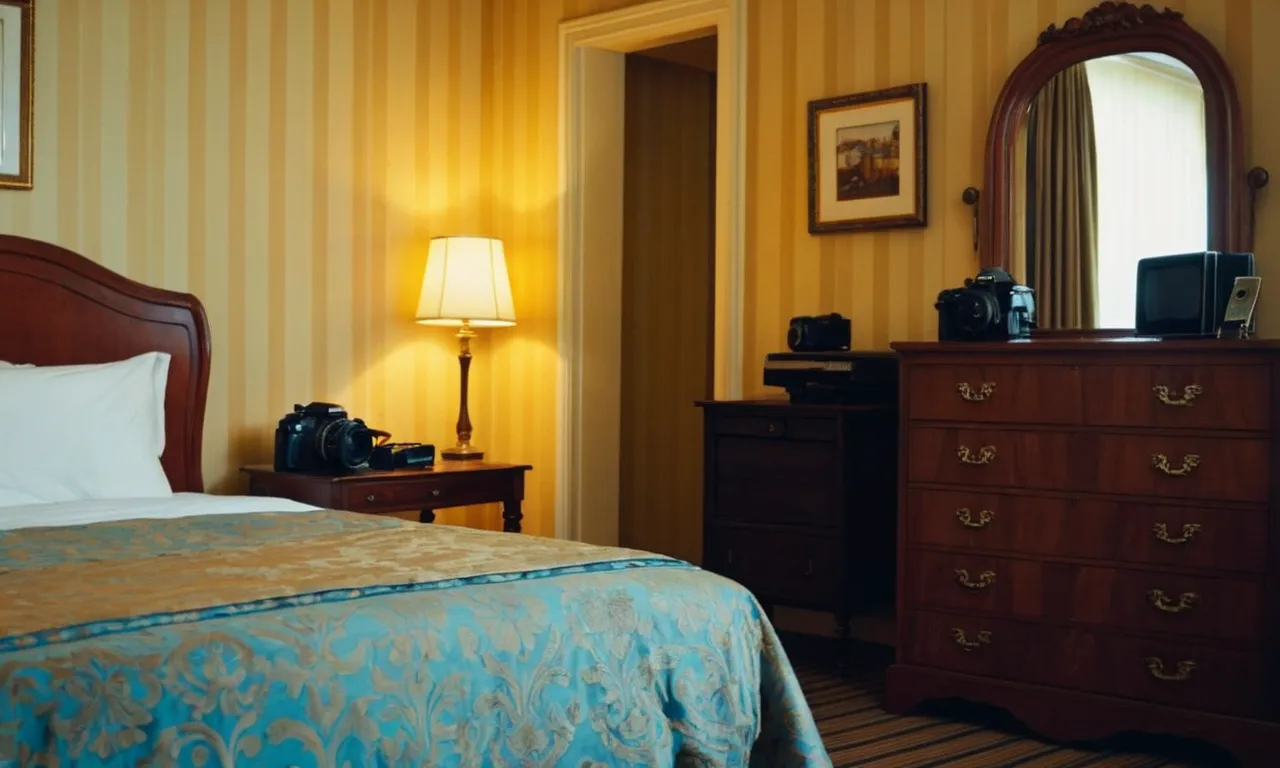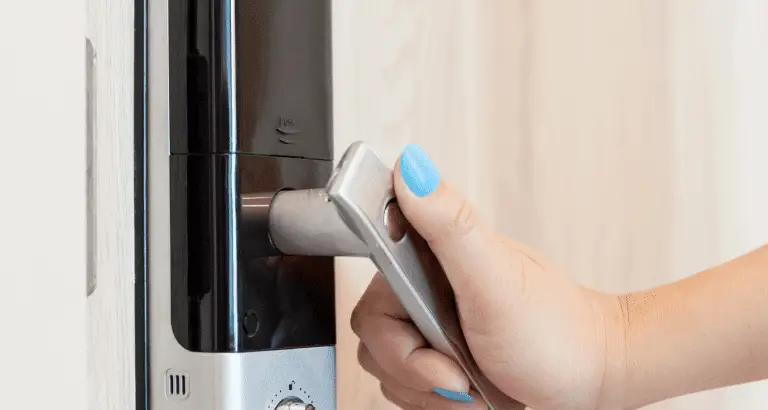Are Hotels Not Responsible For Lost Or Stolen Items?
Imagine this scenario: you’re on a much-awaited vacation, staying at a luxurious hotel, and suddenly, your valuable belongings go missing. It’s a nightmare that no traveler wants to experience, but unfortunately, it happens more often than you might think.
If you’re short on time, here’s a quick answer to your question: Hotels generally have limited liability for lost or stolen items, but the extent of their responsibility varies depending on the circumstances and local laws.
In this comprehensive article, we’ll delve into the intricate details of hotel liability for lost or stolen items. We’ll explore the legal framework, industry standards, and best practices to help you understand your rights as a guest and the hotel’s obligations.
Additionally, we’ll provide practical tips on how to safeguard your belongings during your stay.
Understanding Hotel Liability Laws
When you check into a hotel, you expect a certain level of security and protection for your belongings. However, the reality is that hotels are not always responsible for lost or stolen items. The liability of hotels is governed by a complex set of state and federal laws, and understanding these laws is crucial for both travelers and hoteliers.
State and Federal Laws
In the United States, hotel liability laws vary from state to state. Some states have specific laws that outline the responsibilities of hotels when it comes to lost or stolen items, while others rely on common law principles.
At the federal level, there is no overarching law that governs hotel liability, but there are certain regulations and guidelines that hotels must follow. For example, the Federal Trade Commission (FTC) enforces laws related to consumer protection and deceptive practices, which can apply to hotels.
Innkeeper’s Liability
One of the key legal concepts that governs hotel liability is the innkeeper’s liability. This is a common law principle that holds innkeepers (including hotel operators) responsible for the safekeeping of their guests’ property.
However, this liability is not absolute, and there are limitations and exceptions. According to a study by the American Hotel & Lodging Association (AHLA), around 15% of hotels reported incidents of theft or loss of guest property in 2021, highlighting the importance of understanding these laws.
Limitations and Exceptions
- Contributory Negligence: If a guest’s negligence contributes to the loss or theft of their property, the hotel may not be held liable. For example, if a guest leaves their valuables unattended in a public area, the hotel may not be responsible.
- Reasonable Care: Hotels are generally required to exercise reasonable care in safeguarding their guests’ property. However, what constitutes “reasonable care” can vary depending on the circumstances and the specific laws in each jurisdiction.
- Liability Limits: Many states have laws that limit the maximum amount of liability a hotel can face for lost or stolen items. These limits can range from a few hundred dollars to several thousand dollars, depending on the state.
It’s worth noting that some hotels may have additional policies or procedures in place to protect guests’ belongings, such as offering in-room safes or safety deposit boxes. However, guests should always exercise caution and take reasonable steps to secure their valuables, as hotels may not be held responsible in certain situations.
😊
| State | Maximum Liability Limit |
|---|---|
| California | $1,000 |
| New York | $500 |
| Florida | $1,000 |
Hotel Policies and Procedures
When it comes to lost or stolen items in hotels, policies and procedures play a crucial role in determining the responsibility and liability. Hotels typically have detailed guidelines in place to protect both the guests and the establishment. Let’s delve into some key aspects:
In-Room Safes and Safety Deposit Boxes
Most reputable hotels provide in-room safes or safety deposit boxes at the front desk for guests to secure their valuables. These amenities are designed to offer an additional layer of protection. However, it’s important to note that hotels often disclaim liability for items stored in these safes.
According to Hotels.com, guests are typically responsible for taking reasonable precautions to safeguard their belongings. Failure to do so may be considered negligence on the guest’s part.
Security Measures and Surveillance
Hotels implement various security measures to ensure the safety of guests and their belongings. These may include surveillance cameras, key card access systems, and on-site security personnel. However, it’s worth noting that even with these measures in place, hotels are not automatically liable for lost or stolen items.
According to a study by Statista, in 2021, hotels reported an average of $3,500 in lost and stolen valuables per property. 🤯 While hotels have a duty to maintain reasonable security, guests are still expected to exercise caution and take responsibility for their possessions.
Guest Responsibility and Negligence
Guests have a responsibility to take reasonable care of their belongings while staying at a hotel. This includes locking doors, using provided safes, and not leaving valuables unattended in public areas.
If a guest’s negligence contributes to the loss or theft of their items, the hotel may not be held liable. For instance, if a guest leaves their laptop or jewelry in plain sight in an unlocked room, the hotel could argue that the guest failed to take reasonable precautions. However, if the hotel staff is found to be negligent or involved in the theft, the establishment may be held accountable.
It’s essential for guests to familiarize themselves with the hotel’s policies and procedures regarding lost or stolen items. Many hotels have specific reporting protocols and timelines for filing claims.
By being proactive and diligent, guests can better protect their belongings and understand their rights and responsibilities during their stay. 👍
Navigating Insurance and Compensation Claims
Travel Insurance Coverage
When it comes to lost or stolen items during a hotel stay, travel insurance can be a lifesaver. Many comprehensive travel insurance policies cover personal belongings, providing reimbursement for items that are lost, damaged, or stolen while you’re on your trip.
However, it’s crucial to read the fine print and understand the coverage limits, deductibles, and exclusions. Some policies may exclude high-value items like jewelry or electronics unless they’re specifically listed and insured separately.
According to Forbes Advisor, the average travel insurance policy covers personal belongings up to $1,500 per person, with a maximum limit of $3,000 per trip. But these limits can vary widely among providers, so it’s essential to shop around and choose a plan that meets your specific needs.
Additionally, you’ll typically need to file a police report and provide proof of ownership and value for any claimed items.
Filing a Claim with the Hotel
If your belongings are lost or stolen from your hotel room, your first step should be to notify the hotel staff immediately. Most reputable hotels have procedures in place for handling such incidents, and they may be willing to compensate you for your losses, especially if there’s evidence of negligence on their part.
However, the extent of the hotel’s liability and the compensation process can vary greatly depending on the hotel’s policies and the local laws. In some cases, hotels may have specific liability limits or disclaimers in their terms and conditions, limiting their responsibility for lost or stolen items.
It’s always a good idea to familiarize yourself with these policies before your stay.
When filing a claim with the hotel, be sure to document everything meticulously. Keep records of your communication with the staff, obtain a copy of the incident report, and provide any evidence you have, such as receipts or photographs of the missing items.
😔 If the hotel denies your claim or offers inadequate compensation, you may need to consider legal action.
Seeking Legal Recourse
If the hotel refuses to compensate you for your losses or if the compensation offered is inadequate, you may have the option to pursue legal action. This could involve filing a small claims court case or seeking the assistance of a lawyer, depending on the value of the items involved and the specific circumstances of your case.
However, it’s important to note that the legal process can be time-consuming and costly, and the outcome is never guaranteed. Before taking legal action, you’ll need to carefully weigh the potential benefits against the associated costs and effort involved.
Alternatively, you could consider filing a complaint with consumer protection agencies or industry organizations, such as the American Hotel & Lodging Association. These organizations may be able to provide guidance or mediate a resolution between you and the hotel.
Ultimately, the best approach is to take preventative measures to safeguard your valuables during your hotel stay. Use the in-room safe for storing important items, and consider leaving expensive jewelry or irreplaceable items at home.
👍 With a little preparation and vigilance, you can help minimize the risk of losing your belongings and the potential headaches that come with it.
Safeguarding Your Belongings: Tips and Best Practices
While hotels strive to provide a secure environment, the responsibility for safeguarding your personal belongings ultimately lies with you. Don’t let a lost or stolen item dampen your travel experience!
Here are some practical tips and best practices to protect your valuables and important documents during your hotel stay.
Valuables and Important Documents
- Use the hotel’s safe deposit box or in-room safe to store cash, jewelry, passports, and other irreplaceable items. According to a survey by TravelAgentCentral.com, only 33% of travelers utilize hotel safes, leaving 67% vulnerable to theft.
- Avoid leaving valuables in plain sight or unsecured areas, even in your room.
- Make copies of important documents, such as your passport and credit cards, and keep them separate from the originals.
Securing Your Room
- Always lock your hotel room door, even when you’re inside. Don’t forget to secure the deadbolt or chain lock as well.
- Be cautious about opening your door to strangers. Reputable hotel staff will identify themselves before entering.
- When leaving your room, hang the “Do Not Disturb” sign to deter unauthorized entry.
Being Vigilant in Public Areas
While hotels prioritize security, public areas like lobbies, restaurants, and pools can be vulnerable to theft. Stay alert and follow these tips:
- Keep your belongings close and in sight at all times. Don’t leave them unattended, even for a moment.
- Be mindful of your surroundings and report any suspicious activity to hotel staff immediately.
- Avoid flashing expensive items or carrying large amounts of cash in public areas.
By following these safeguarding tips and best practices, you can significantly reduce the risk of losing or having your belongings stolen during your hotel stay. Remember, a little vigilance goes a long way in ensuring a worry-free and enjoyable travel experience! 😊
Conclusion
While hotels have a duty of care towards their guests, their liability for lost or stolen items is often limited by laws and policies. Understanding these nuances is crucial for travelers to make informed decisions and take necessary precautions to protect their belongings.
By familiarizing yourself with hotel liability laws, policies, and insurance options, you can better navigate the complexities of lost or stolen item situations. Additionally, implementing practical safeguarding measures can significantly reduce the risk of such incidents, allowing you to enjoy a worry-free and memorable travel experience.







